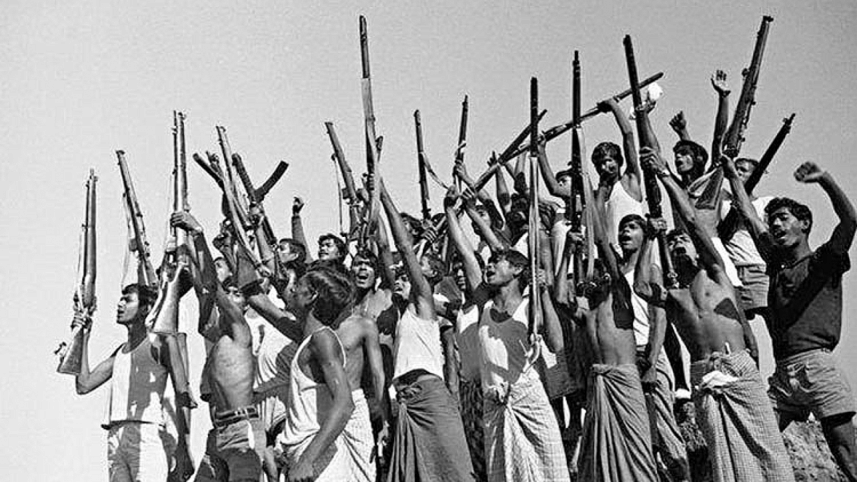Bangladesh: A War Like No Other

I
Two hundred and sixty-six days. Three million lives. 7.83 lives per minute. Ten million dislocated in neighbouring India. Countless more victims of sexual assault and arson. Even more traumatised by the brutality of war and genocide. This was the price a country paid to put Bangladesh on the world map. On December 16, 1971, Bangladesh emerged victorious.
The two great wars of the twentieth century shaped much of the world as we see it today. The First World War weakened Britain and France in Western Europe and the Ottomans in the Eastern Europe. The fall of the Ottomans in November 1922 led to the Middle East as we see it today. The Second World War heralded the dawn of decolonisation of British and French colonies.
When the British realised their time had ended in India, the nation was partitioned. This resulted in today's India and Pakistan, with the latter having two wings in the east and the west.
This partition for what was East Bengal till 1956, and then East Pakistan was asymmetric from day one. Apart from religion, the two wings didn't have much in common to hold on to. The western wing was never fair towards the eastern wing. The indifference and cruelty of the West was exemplified when The Bhola Cyclone in 1970 hurt the people of the eastern wing. Furthermore, the people of the eastern wing won the first democratic election in the country's history but were denied victory. The final nail to the coffin came with Operation Search Light on the night of March 25, 1971.
And that was it. "The story of Bangladesh, an ancient one, again made fresh" would be another story of a just war against an unjust oppression.
II
Wars and conflict have shaped history from the beginning of time and have been the ingredients of epics in Mahabharata, Iliad, Shahnameh, The Epic of Gilgamesh and others. These epic wars have one common thread. When the cause is just, a war is inevitable. When a nation wants something that is just, "…the universe conspires in helping them to achieve it" as young Santiago in The Alchemist found out.
The Bangladesh War of Independence was a just war. One step ahead, not too many wars in history have been fought for independence. Even fewer have been wars where global powers and people participated for a just cause, with The Liberation War of Bangladesh being one of those rare instances. There are not too many examples in history. The war attracted the attention of freedom loving people and nations around the world. Had that not been the case, the war could easily have lingered on for years.
III
Half a century later, as we look back on 1971, we see that we stand tall because we stand on the shoulder of giants. We stand on the shoulders of a generation that fought till the end with help from friends around the world.
It's now the responsibility of the youth to dig through that history and feel proud. And, by doing so, take Bangladesh forward and beyond.
Asrar Chowdhury is a professor of economics. He follows Test cricket and listens to music when he has free time. Email: asrarul@juniv.edu; or asrarul@gmail.com



 For all latest news, follow The Daily Star's Google News channel.
For all latest news, follow The Daily Star's Google News channel.
Comments